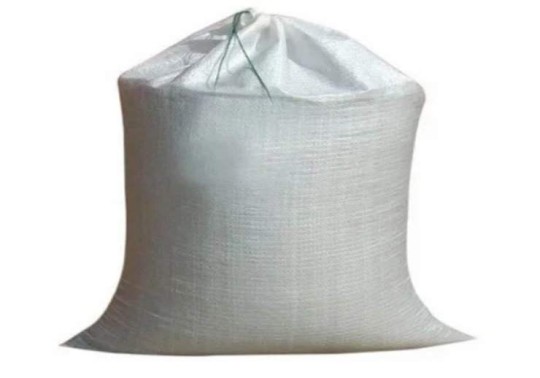#isi mark certificate for woven sacks
Explore tagged Tumblr posts
Text
#BIS for woven sacks#isi mark for hdpe/pp woven sacks#bis certificate#isi mark certificate for woven sacks#is 11652: 2017#bis consultant
1 note
·
View note
Text
BIS Certification for Woven Sacks

In a bid to uphold quality standards and consumer safety, the Department for Promotion of Industry and Internal Trade has recently introduced the Woven Sacks (Quality Control) Order, 2023. This regulatory measure comes after careful consideration and consultation with the Bureau of Indian Standards (BIS Act, 2016), reflecting a commitment to ensuring that woven sacks meet stringent quality benchmarks. The order stipulates adherence to specific Indian Standards, such as IS 9755:2021, IS 11652:2017, IS 16709:2017, IS 16703:2017, and IS 17399:2020. Furthermore, it mandates the display of the ISI Mark under a BIS License granted by the Bureau of Indian Standards (ISI Mark Certification).
Understanding the Regulatory Landscape:
The foundation of the Woven Sacks (Quality Control) Order lies in the BIS Act of 2016, emphasizing conformity to Indian Standards for Woven Sacks. These standards, outlined in Scheme-I of Schedule-II of the Bureau of Indian Standards Conformity Assessment Regulations, 2018, are crucial for ensuring the quality and safety of woven sacks in the Indian market.
Key Indian Standards and Their Significance:
IS 9755:2021 - Specification for Woven Polypropylene Bags for Packaging: This standard sets forth the requirements for woven polypropylene bags used in packaging. It covers aspects such as dimensions, construction, and performance criteria, ensuring that these bags are fit for their intended purpose.
IS 11652:2017 - Specification for Woven High-Density Polyethylene (HDPE) Fabric for Flexible Intermediate Bulk Containers (FIBC): FIBC, commonly known as bulk bags, play a vital role in various industries. This standard establishes the specifications for woven HDPE fabric used in FIBC, ensuring durability and reliability in bulk packaging.
IS 16709:2017 - Specification for Coated Woven Fabrics for Water Harvesting: As water scarcity becomes a growing concern, this standard addresses the need for reliable materials in water harvesting systems. It outlines the requirements for coated woven fabrics, emphasizing their effectiveness in water conservation efforts.
IS 16703:2017 - Specification for Woven Laminated Polyethylene Tarpaulin: Tarpaulins are essential in protecting goods from the elements. This standard provides specifications for woven laminated polyethylene tarpaulins, ensuring their resilience and longevity in diverse weather conditions.
IS 17399:2020 - Specification for Woven Polyethylene Geomembrane: Geomembranes find applications in various civil engineering projects. This standard specifies the requirements for woven polyethylene geomembranes, ensuring their effectiveness in containment and environmental protection.
Implementation and Compliance:
The Woven Sacks (Quality Control) Order necessitates that manufacturers adhere to these Indian Standards in the production of woven sacks. Compliance involves rigorous testing and quality assurance processes to ensure that the final products meet the specified criteria. Furthermore, it introduces the requirement of obtaining the ISI Mark through a BIS License, adding an additional layer of verification and credibility to the products.
Significance of the ISI Mark:
The ISI Mark, a symbol of quality and conformity to standards, is granted by the Bureau of Indian Standards through a thorough certification process. Manufacturers of woven sacks must obtain this mark to demonstrate compliance with the prescribed standards, assuring consumers of the product's quality and safety. The mark instills confidence in both domestic and international markets, enhancing the competitiveness of Indian woven sacks.
Consumer Protection and Confidence:
One of the primary objectives of the Woven Sacks (Quality Control) Order is to safeguard consumer interests. By enforcing adherence to stringent standards and the display of the ISI Mark, consumers can make informed choices, confident in the quality and reliability of the woven sacks they purchase. This not only protects consumers from substandard products but also contributes to the overall development of a trustworthy market environment.
Challenges and Opportunities:
While the implementation of the Woven Sacks (Quality Control) Order is a significant step toward enhancing the quality of woven sacks in the market, it may pose challenges for manufacturers initially. Adapting production processes to meet the stringent standards and obtaining the necessary certifications might require investments in technology and training. However, this also presents an opportunity for manufacturers to distinguish themselves by prioritizing quality, thereby gaining a competitive edge.
Conclusion:
BIS Certification for Woven Sacks (Quality Control) Order, 2023 marks a pivotal moment in ensuring the quality and safety of woven sacks in the Indian market. By aligning with specific Indian Standards and obtaining the ISI Mark through a BIS License, manufacturers are compelled to prioritize quality in their production processes. This not only protects consumer interests but also contributes to the overall growth and reputation of the woven sacks industry in India. As the industry adapts to these new regulations, it is poised to thrive in a landscape where quality is paramount, fostering innovation and competitiveness.
0 notes